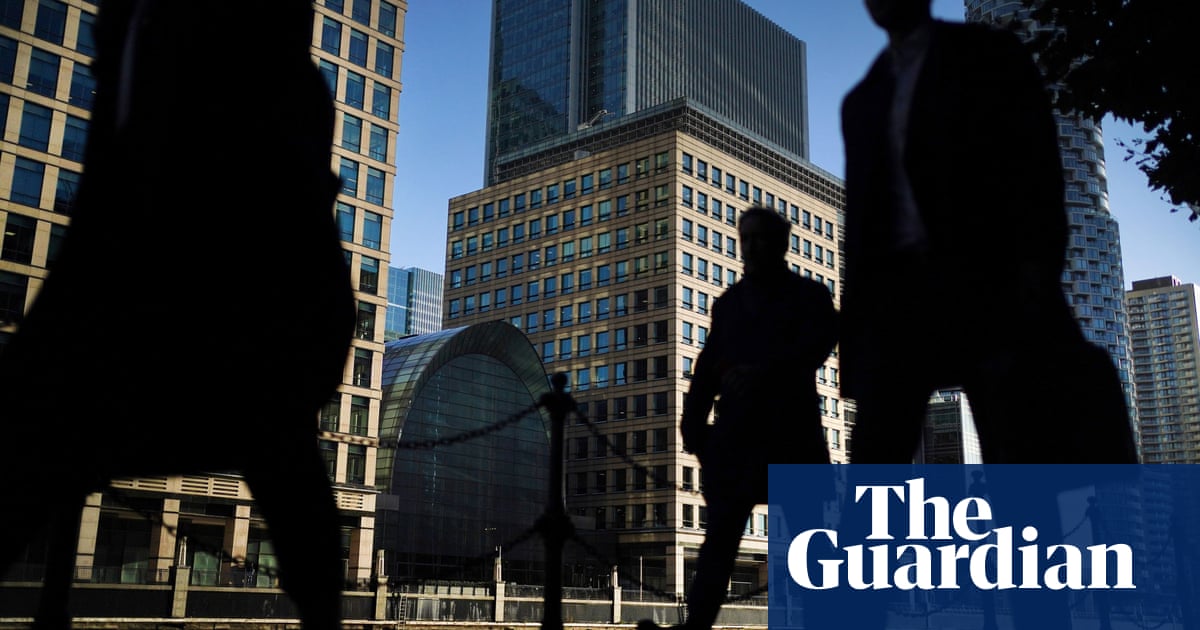UK economic outlook has worsened, warns OECD

The UK’s economic outlook has worsened this year as high interest rates and the lingering effects of last year’s surge in inflation take a bigger toll on growth than previously expected, according to the Organisation for Economic Cooperation and Development (OECD).
In a downbeat assessment of the potential for the economy to expand in 2024, the Paris-based thinktank downgraded its forecast for UK growth this year from last November’s forecast of 0.7% to 0.4%.
It predicts a modest bounce back in 2025 with growth of 1% – a rate of growth half that projected by the Treasury’s independent forecaster, the Office for Budget Responsibility (OBR).
The OECD said Britain’s growth rate would be dampened by persistent price rises in the services sector and shortages of skilled staff that would push up wages in many industrial and commercial sectors.
The assessment followed a more optimistic outlook for the global economy, which the OECD said was gaining in strength despite the threat of worsening conflicts in Ukraine and the Middle East.
“There are some signs that the global outlook has started to brighten, even though growth remains modest,” it said in a half-yearly health check.
Global GDP growth is projected to be 3.1% in 2024, unchanged from 2023, before edging up at 3.2% in 2025 helped by stronger growth in household incomes and lower interest rates.
Governments representing much of the world’s output are expected to keep a tight rein on spending, even as interest rates begin to decline, allowing the effect of cheaper money rather than public spending to ease the cost of living crisis facing many low- and middle-income groups.
A recovery is expected in the eurozone while growth moderates in the US, India and other emerging-market economies.
Annual consumer price inflation in the G20 economies – which includes the UK, Brazil, Saudi Arabia, France and Mexico – is projected to ease gradually, helped by fading cost pressures, declining to 3.6% in 2025 from 5.9% in 2024.
“By the end of 2025, inflation is projected to be back on target in most major economies,” the report said.
In a warning to the UK government, the OECD said the chancellor, Jeremy Hunt, “should remain prudent and focus on productivity-enhancing public investment”.
Any loosening of the public purse strings should only happen after interest rates have fallen back, it said, predicting that the Bank of England will reduce the cost of borrowing from 5.25% to 3.75% by the end of next year.
“Fiscal prudence is required as inflation remains above target, and spending is to be directed towards supply enhancing investment, including infrastructure, the National Health Service, and adult skills,” the report said.
“Proceeding with the childcare reform will help tackle economic inactivity, but requires contingent planning to address potential bottlenecks, in particular likely staff shortages.”
Cuts to Whitehall budgets already in the pipeline will reduce the government’s spending deficit from 4.6% this year to 3.5% next year, it added.
Hunt said: “This forecast is not particularly surprising given our priority for the last year has been to tackle inflation with higher interest rates.
“But now we are winning that war, growth matters which is why it is significant that last month the IMF predicted the UK will grow faster over the next six years than any European G7 country or Japan. To sustain that we need to stick to our plan – competitive taxes, a flexible labour market and far-reaching welfare reform.”
The OBR has forecast that the UK’s growth rate will rise to 1.9% next year after a steep fall in interest rates and inflation.
Related
Why investing in women is a vital next step for…
Get Nadine White's Race Report newsletter for a fresh perspective on the week's newsGet our free newsletter from The Independent's Race CorrespondentGet our fre
Business secretary signals major shift on electric car policy to…
In a determined effort to retain Nissan’s manufacturing presence in Britain, Business Secretary Jonathan Reynolds has vowed to implement “substantial c
Joint Statement: Business Secretary and Fujitsu Services Ltd
Business and Trade Secretary Jonathan Reynolds today (Friday 7 March) met chiefs for Fujitsu in Tokyo to begin talks over the cost of redress for victims of th
UK foreign secretary backs multilateral defence funding for Europe
UK foreign secretary David Lammy has said that a new multilateral fund will be needed to secure Europe’s defence as he confirmed that Britain is “open to”













